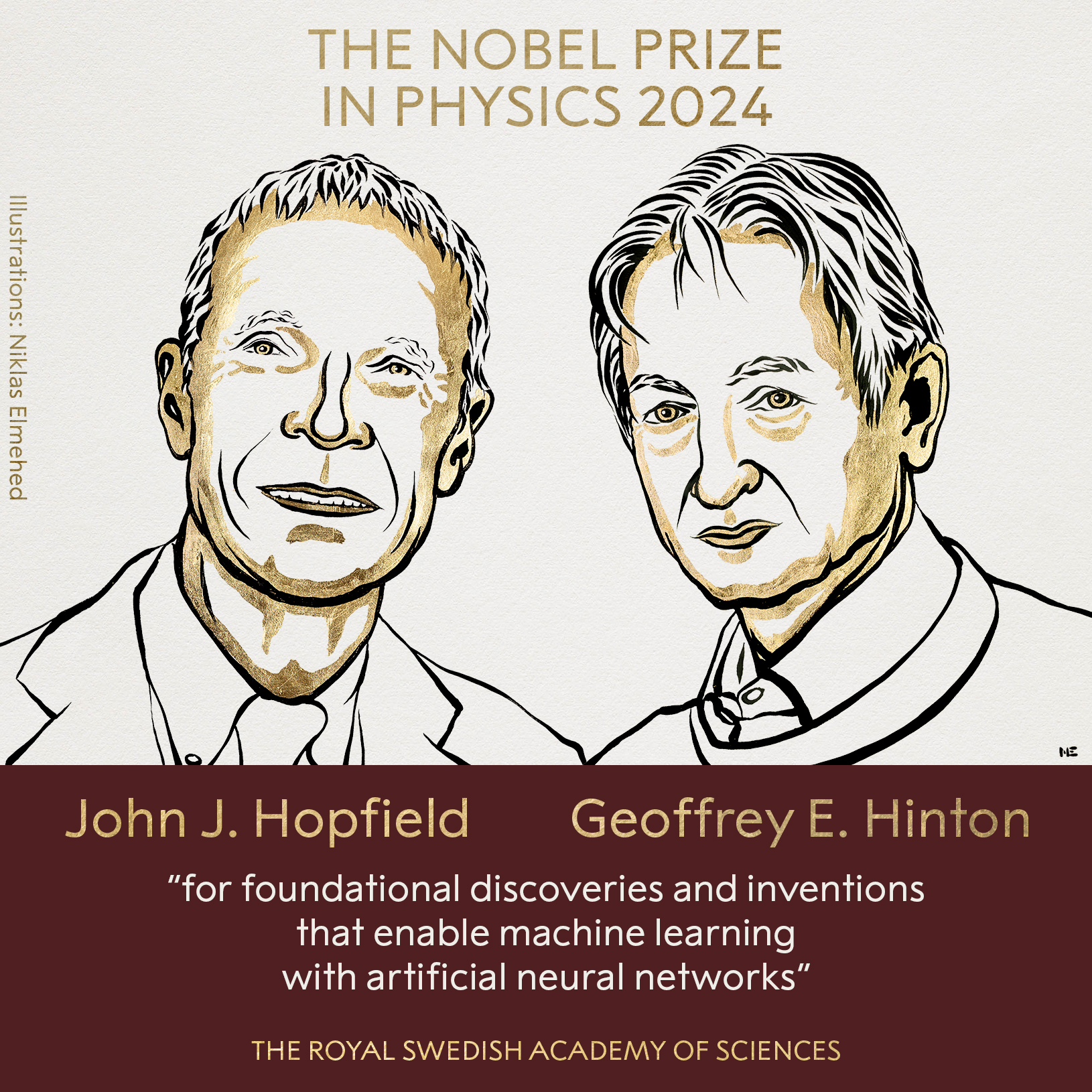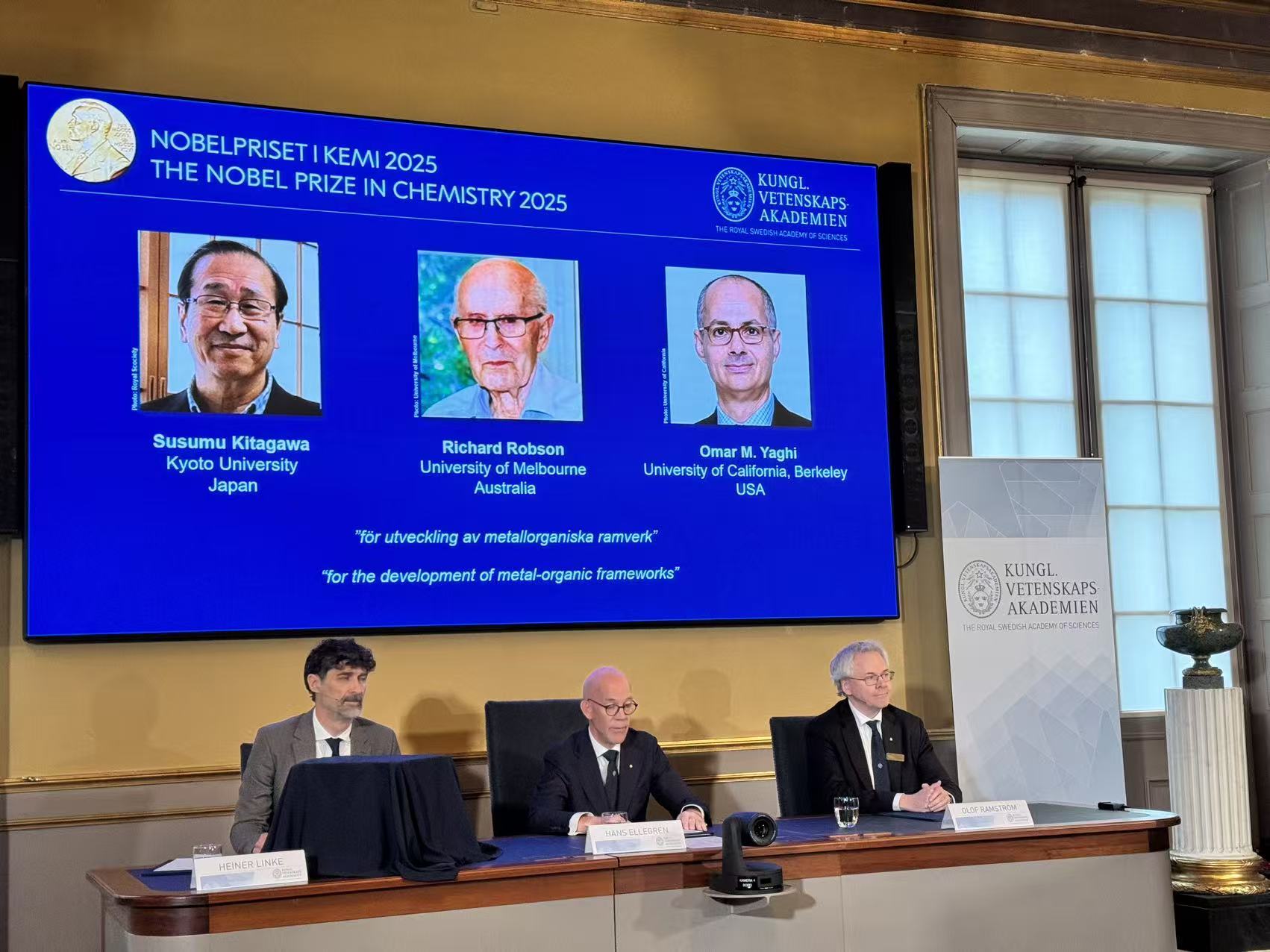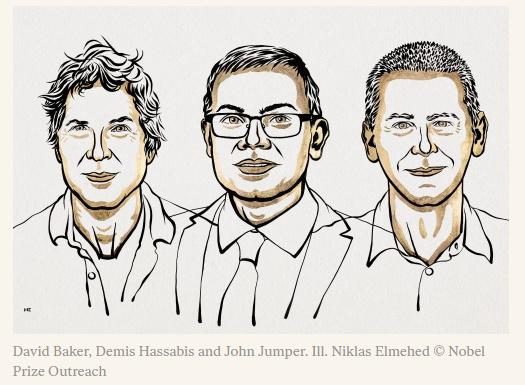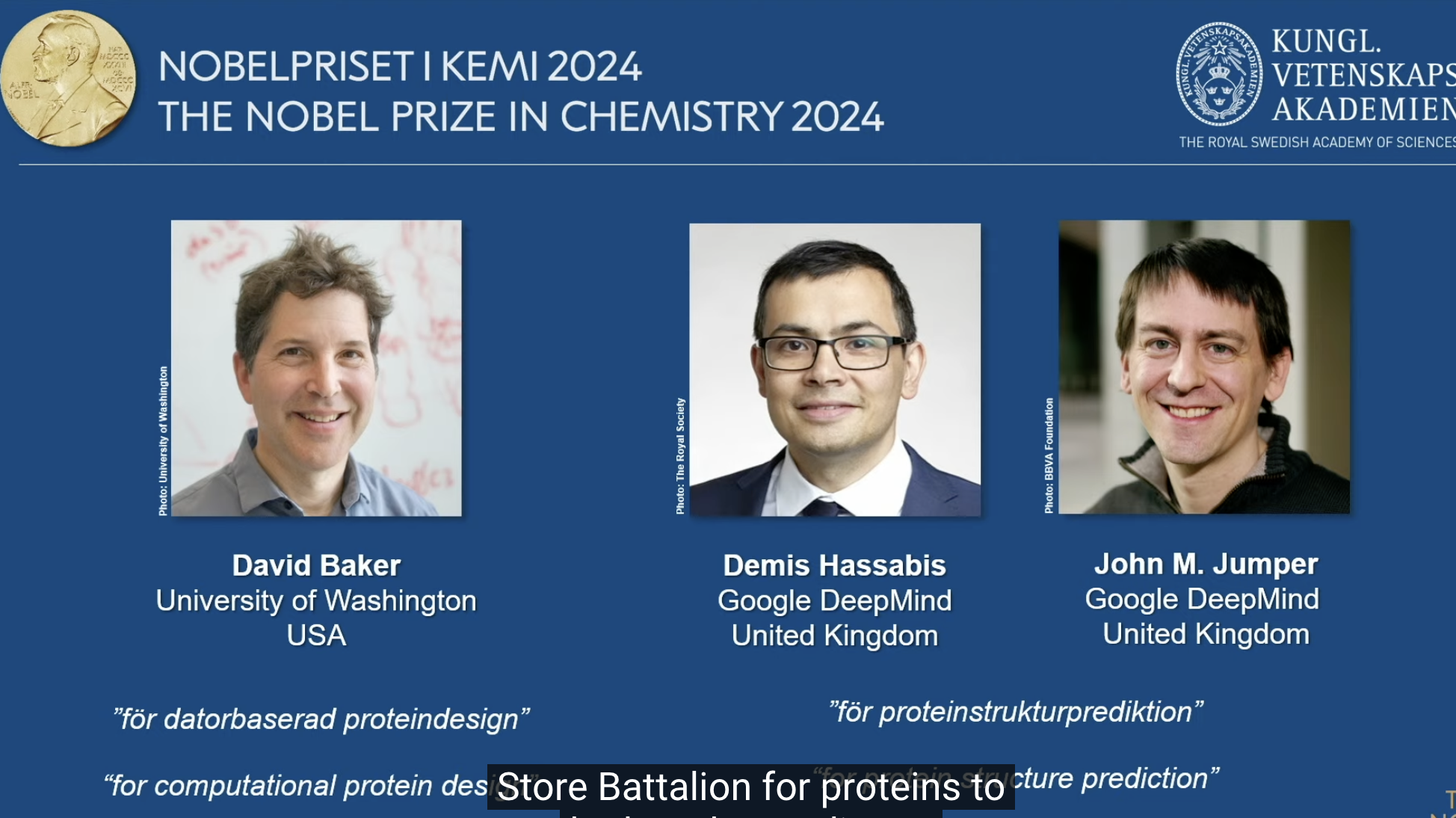

2024 Nobel Prize in Physics laureates: John Hopfield (left) and Geoffrey Hinton (right).
On October 8, local time, the Royal Swedish Academy of Sciences announced that the 2024 Nobel Prize in Physics is awarded to John J. Hopfield of Princeton University in the United States and Geoffrey E. Hinton of the University of Toronto in Canada, in recognition of their “foundational discoveries and inventions that enable machine learning with artificial neural networks.” The two laureates will share a prize of 11 million Swedish kronor (approximately 7.45 million RMB).
Utilizing tools from physics, the awardees have created various methods that lay the groundwork for today's powerful machine learning techniques. John Hopfield developed a structure capable of storing and reconstructing information. Geoffrey Hinton invented a method that allows independent discovery of data properties, which is crucial for the large artificial neural networks currently in use.
According to the Nobel Prize official website, John Hopfield was born on July 15, 1933, in Chicago, Illinois, and earned his Ph.D. from Cornell University in 1958; he is currently a professor at Princeton University in New Jersey. Geoffrey Hinton was born on December 6, 1947, in London, England, and obtained his Ph.D. from the University of Edinburgh in 1978; he is a professor at the University of Toronto in Canada.
Previously, John Hopfield explored theoretical problems in molecular biology using his physics background. Upon being invited to a neuroscience conference, he encountered research on the structure of the brain. Fascinated by what he learned, he began contemplating the dynamics of simple neural networks. He observed that when neurons interact, they produce new powerful properties that are not evident when one focuses solely on the individual components of the network.
In the 1990s, many researchers lost interest in artificial neural networks, but Geoffrey Hinton continued to explore this field. In 2006, he and his colleagues Simon Osindero, Yee Whye Teh, and Ruslan Salakhutdinov developed a pre-training method for networks using a series of layer-wise stacked Boltzmann machines. This pre-training provided a better starting point for connections in the network.
Prior to this award, the Nobel Prize in Physics had been awarded to 225 laureates. Due to John Bardeen receiving the award twice, a total of 224 individuals have been honored since 1901. Since then, the Nobel Prize in Physics has been awarded 117 times.
Recent Nobel Prizes in Physics (last 5 years)
The 2023 Nobel Prize in Physics was awarded to Pierre Agostini, Ferenc Krausz, and Anne L’Huillier for their "experimental methods that generate attosecond pulses of light for the study of electron dynamics in matter."
The 2022 Nobel Prize in Physics was awarded to Alain Aspect, John Clauser, and Anton Zeilinger for their contributions to quantum information science. Through photon entanglement experiments, they established that Bell's inequalities do not hold in the quantum world, pioneering the field of quantum information.
The 2021 Nobel Prize in Physics was shared between Syukuro Manabe, a Japanese-American scientist, and Klaus Hasselmann, a German scientist, for their contributions to the physical modeling of Earth's climate, quantifying variability, and reliably predicting global warming. The other half went to Italian scientist Giorgio Parisi for his discovery of the interplay between disorder and fluctuations in physical systems from atomic to planetary scales.
The 2020 Nobel Prize in Physics was split between Roger Penrose and Reinhard Genzel and Andrea Ghez. Roger Penrose was awarded for his discovery that "the formation of black holes is a robust prediction of general relativity," while Reinhard Genzel and Andrea Ghez were recognized for "the discovery of a supermassive compact object at the center of our galaxy."
The 2019 Nobel Prize in Physics was awarded to James Peebles, Michel Mayor, and Didier Queloz for their groundbreaking contributions to our understanding of the universe. James Peebles received half of the prize for his "theoretical discoveries in physical cosmology," while Michel Mayor and Didier Queloz shared the other half for their "discovery of an exoplanet orbiting a solar-type star."



